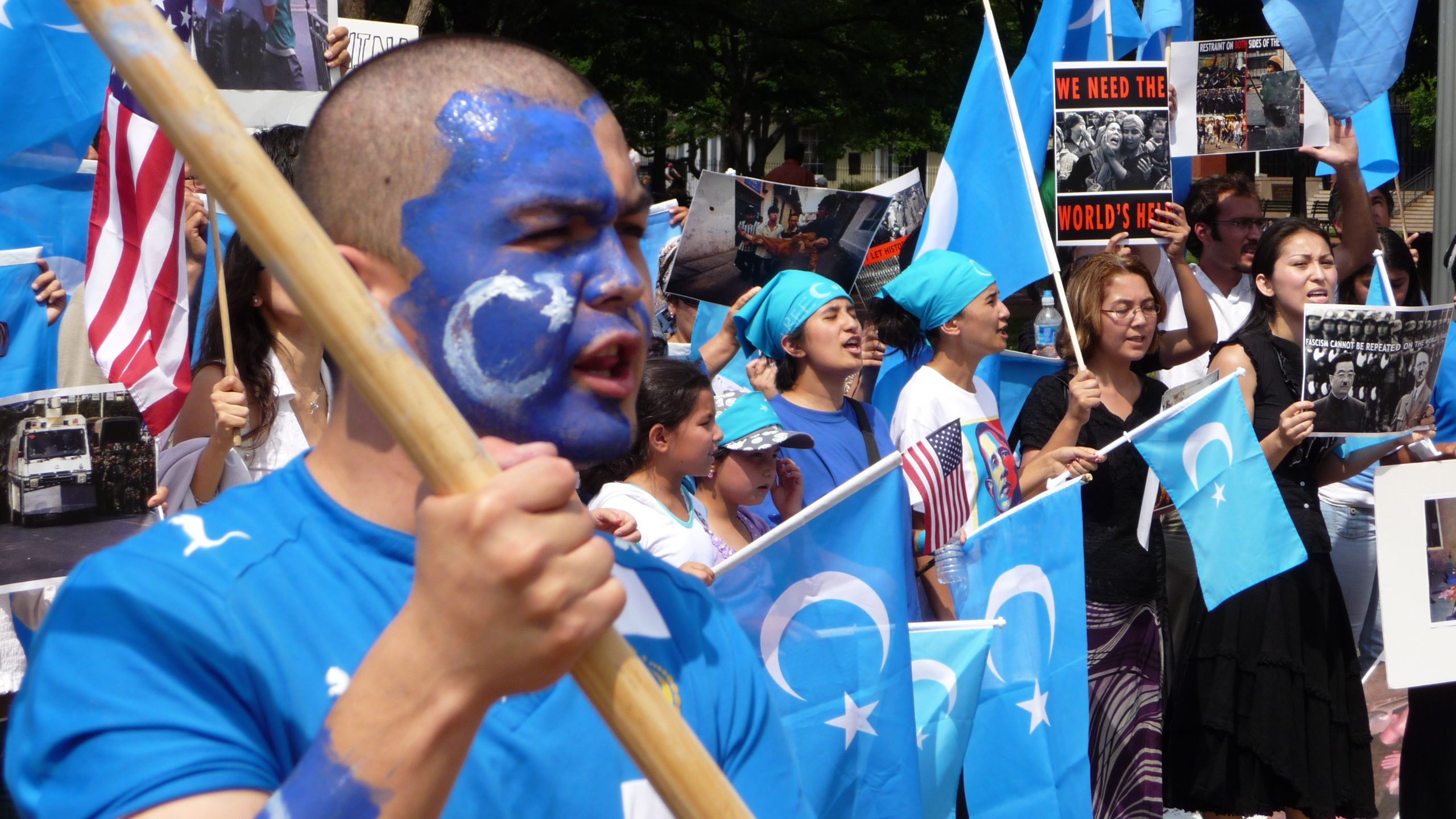
This article originally appeared in the Toronto Star.
By Sarah Teich, Daniel Eisen, and Mehmet Tohti, July 25, 2022
The Chinese Communist Party (CCP) is committing mass atrocity crimes and grave human rights violations against the Uyghurs and other Turkic Muslims in Xinjiang/East Turkestan. The surveillance is so pervasive that the region has been described as essentially an open-air prison.
Arbitrary detentions number in the millions, making it the largest incarceration of a minority group since the Holocaust. Physical and sexual torture are widespread, both inside and outside the concentration camps. Medical crimes include measures to restrict births within the group, such as forced sterilization of Uyghur women and girls.
Uyghur forced labour is pervasive, and there is evidence that it taints the supply chains of dozens of multinational corporations, including Nike and Zara. Transnational repression and intimidation of Uyghurs outside of China by the CCP is commonplace, and includes efforts to detain and deport Uyghurs back to China. These are just a handful of examples.
Independent, credible bodies like the Uyghur Tribunal chaired by Geoffrey Nice have found that the crimes committed against the Uyghurs and other Turkic Muslims in the region constitute genocide, pursuant to the definition contained in the 1948 UN Genocide Convention. The United States Congress and government have agreed, and so too have numerous parliaments, including those of Canada, the Netherlands, France, Czech Republic, Lithuania and the United Kingdom.
Over 150 countries, including Canada, have ratified the Genocide Convention. By doing so, these countries have agreed to take action to prevent and to punish genocide. What is happening to the Uyghurs is a genocide, and these countries are obligated to act.
A new joint paper published by the Macdonald-Laurier Institute, Canadian Security Research Group, and the Uyghur Rights Advocacy Project reviews evidence of crimes against Uyghurs, and identifies options for action.
International courts and human rights mechanisms should be leveraged. State parties to the Rome Statute of the International Criminal Court can ask that the court investigate certain crimes over which it may have jurisdiction — namely, the crimes against humanity of deportation and persecution. States can also ask the International Court of Justice to look into violations of the Genocide Convention or the Convention Against Torture, or to seek an advisory opinion.
Furthermore, complaints of human rights breaches may be lodged with the UN Special Procedures, which includes working groups and special rapporteurs, several of which have relevant mandates. Indeed, any individual or group can submit information to special procedures.
Domestic legal and policy initiatives can and should be pursued in tandem. Canada and like-minded partners can impose targeted sanctions on Chinese officials responsible for human rights violations, using their respective Magnitsky-style acts. Magnitsky acts generally enable the imposition of property and visa sanctions on individuals with responsibility for gross violations of human rights or acts of significant corruption. Canada has already sanctioned four individuals and one entity for crimes committed against Uyghurs, but more can and should be done. Civil lawsuits and criminal prosecutions should be pursued where appropriate.
Finally, novel legislation may be pursued, including to address Uyghur forced labour, organ harvesting and refugee resettlement. Facilitating the resettlement of Uyghur refugees is especially urgent, as evidence mounts of CCP efforts in other countries to detain and deport Uyghurs back to China, where they would almost invariably suffer atrocity crimes including detention and torture.
Given the CCP’s involvement in horrific crimes against Uyghurs and other Turkic Muslims, democratic states should not sit idly by. There are several options available to hold the CCP to account and to protect victims. Canada and like-minded partners should uphold their obligations and take action to stop the genocide.
Sarah Teich is an international human rights lawyer, a senior fellow at Macdonald-Laurier Institute, and an adviser to Canadian Security Research Group and Uyghur Rights Advocacy Project. Daniel Eisen is co-founder of Canadian Coalition Against Terror and consultant to Canadian Security Research Group. Mehmet Tohti is the executive director of the Ottawa-based Uyghur Rights Advocacy Project and a prominent Uyghur activist.





